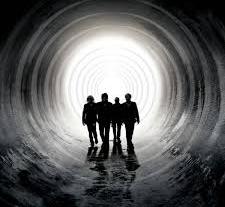Tell us a bit about your main character. What’s the most interesting thing about him? What makes her heroic? What foibles make him human?
Category Archives: #writetip
Reader Friday: Best Tools for Writers?
Tool Guy wants to know: what writing software or tools do you use?
p.s. Click here for a discussion about some specific tools.
Which Writer Species Are You?
Hey Zoners, this is Kathryn Lilley. I’m trying something a little different today. I’m narrating my post to see how it feels. (Click embedded Player, above). Be sure to comment when you finish reading. Let me know whether you like having audio served with your post.
Here’s my thought about writers: we come in all different flavors and styles. I spent some time today pondering the variety of our styles. Here’s my list of some of the major categories and characteristics of the writer species:
1) The Proud Pantster
 You always plan to outline, but never get around to it. You feel remorseful that your track record is so haphazard. You promise to outline the next one.
You always plan to outline, but never get around to it. You feel remorseful that your track record is so haphazard. You promise to outline the next one.3) The Writer-Terminator
 You churn out an impressive quota of words every day. No. Matter. What. You finish projects before deadline, and juggle multiple WIPs while breaking the minute mile on the treadmill. Your fellow writers admire you. And resent you.
You churn out an impressive quota of words every day. No. Matter. What. You finish projects before deadline, and juggle multiple WIPs while breaking the minute mile on the treadmill. Your fellow writers admire you. And resent you.Thank goodness you can write pretty well, because basically, you have no other marketable skills. If it weren’t for words, you’d be pushing a shopping cart.
You didn’t plan to spend your career writing fiction–it just seemed to happen. A series of lucky breaks meant that you didn’t have to work too hard to get published. You don’t like to talk about how you got started–people get annoyed. Besides, nowadays, you are definitely suffering
6) The Cranky Writer
You cram in your writing time between a million other duties: job, family, life. Your perennial dream is to go on a writer’s retreat. Or simply to take a nap.
8) The On-deadline Writer
See Harried Writer. See also Cranky Writer.
Words flow easily from you, in delicious, buttery prose. You landed your agent and a contract with a Big-6 publisher within weeks of finishing your first draft. You don’t understand what people mean when they say they’re “blocked.” When you write, you’re simply taking dictation from a band of leprechauns who conjure stories deep inside your brain.
Finding Your Purpose
“Every one of us needs a purpose that’s big enough to call forth the gifts and abilities within us.”
— Richard J. Leider, Life Skills
Do you live your life “on purpose”? Do you know what that purpose is?
That unsettling question was posed to an audience of about 200 people at a workshop I recently attended.
Many of us don’t think too much about the real purpose of our lives, said the workshop’s leader, a vivacious woman named Kathleen Terry. We know what we like to do, what we’re good at, and what we have to do. But if we can discover a purpose behind all those activities, according to Terry, we can develop a richness of spirit and add meaning to our lives.
Terry gave us an actual formula for finding one’s purpose:
G + P + V = Purpose
This is how she explained the equation:
“You heed your purpose when you offer your Gifts in service to something you are Passionate about in an environment that is consistent with your core Values.”
Next, we set about drafting a Purpose Statement. To identify our Gifts, we were each given a stack of activity cards. We had to sort the activity cards into three piles, with each pile representing our preferences:
1) Activities we Love to Do
2) Activities We’re Not Sure About
3) Activities we Definitely Don’t Like to do.
From the “Love to Do” pile, we had to select our top five favorite activities, then designate one activity as the most important of all.
My Number One activity card turned out to be “Writing Things.” My four runner-up cards were “Researching Things,” “Discovering Resources,” “Analyzing Information,” and “Putting the Pieces Together.”
All my activity cards–a.k.a., my “gifts”–identified me as a writer. No big surprise there. At least it was obvious what I like to do.
But I still lacked a purpose. How am I meant to use the writing in the service of a greater purpose in life? Is that purpose merely to entertain and sell books? (That doesn’t sound very noble.) Is my purpose to inspire others to develop their own creativity? Perhaps I could volunteer as a blogger or writer on behalf of a cause I’m passionate about, such as Monarch habitat preservation.
We weren’t expected to finalize our purpose statement in the two hours of the workshop, I was relieved to learn. It turns out, sometimes it takes people years to discover their life’s purpose.
But I’m glad to be thinking in this general direction. And if you ever have a chance to take a “Finding Your Purpose” workshop, I highly recommend it.
What about you? Have you given your life’s purpose much thought? Is your writing an element of a higher purpose?
Got Theme?
Recently in my role as TKZ admin and self-appointed den mother, I noticed that we were getting a lot of traffic related to the topic of “developing a theme in fiction writing.” Since searches for that topic take people to an article I wrote back in 2009, I think it makes sense to revisit the subject of theme.
A story’s theme is the fundamental and universal idea behind its plot. If a plot could be compared to the body of a race car, the theme would be the engine turning its wheels. In King Lear, for example, one of its main themes is authority versus chaos.
Theme vs. Subject
We should not confuse a story’s subject with its theme. The subject of a story would be a one-word descriptor of its main idea. “War”, for example, would be the subject of many stories. A theme would be an opinion related to that subject, such as “In War, everyone loses.” Joe Moore wrote an excellent post a while back about how to distinguish between a story’s subject and its theme.
Some writers approach theme almost as an afterthought. But having a well-crafted theme adds dimension and depth to our stories.
Using a character-driven approach to develop a theme
I like to use minor characters to explore a story’s underlying theme. I call this method the “360-degree” approach to developing theme. In this approach, the secondary characters represent various aspects of the main theme, and they act as foils to the main character’s experiences. For example, the theme of A KILLER WORKOUT was “Mean Girls Suffer Last”. That theme was explored through the story arcs of several characters. One woman had been victimized by bullies in her youth; another was a bully. Another character was a protector of abused women. Each of these characters explored different facets of the subject of bullying and emotional abuse.
What’s your theme?
How do you explore theme? What’s the theme of your WIP? How are you working that theme into your narrative?
Reader Friday: Scene Exercise
First Page Critique: THE CIRCLE
Today we have a first page from a story called THE CIRCLE. My comments follow.
***
Leigh looked up from her mum’s casket, concentrating on the slatted, pitched ceiling of the church. The familiar voice of the chaplain droned on from the pulpit and she focused not his words, which would surely undo her, but to the soothing and steady cadence. She held the back of her forefinger to her nose, wincing as she touched the swollen, chapped skin.
Reaching in her handbag for a tissue, her searching fingers settled on the age-softened newspaper article her mum had given her just two days ago. A jolt fired through her stomach and she yanked her hand out and clenched her palms in her lap, her fingers twining together until her knuckles blanched.
What had they been like?
The unspoken question itself felt traitorous. A glance to her left confirmed that her dad—that is, the only man she’d ever known as a father—was sitting upright, only the sparkling reflection on his cheeks belied his stoic figure.
Leigh took a steadying breath. Today she would ask Uncle Pete about the article. She cast a quick glance over her shoulder to see if she could spot him in the pews but her attention was caught by a man near the door in plain green Barrack Dress, staring at her.
She turned around to face forward again, her brow puckered. The military uniform must mean he was a friend of her dad. But surely the man was too young? Her dad had retired from the service when she was a baby. And the man had rudely not looked away when she’d held his gaze.
She turned to look again, but now there was only empty space where he’d stood.
###
Leigh found Uncle Pete at the reception back at the house. He was loading a plate from the buffet of casseroles and cakes in the dining room. When he saw her, he set it down and held out a hand. As she hugged him, he tucked her head under his chin.
“Hey little bit,” he said. “I’m so sorry. Your mum was one of a kind.”
Leigh relaxed into his embrace, hitching in a stuttering sigh. Though they weren’t related, she’d called him uncle as long as she could remember. And now he might be the only one who could help her. “Can I talk to you alone?”
***
My comments: I like the premise the writer establishes in this first page. We immediately know that the narrator is going through multiple crises–her mother has just died, and she just learned that the parents she has always known are not her real parents. There’s also a hint of military intrigue to come. This is a good opening situation.
In general, the writing here is strong enough to keep me reading. I would suggest some tweaking to make it even stronger. I put my specific suggestions in bold red.
Leigh looked up from her mum’s casket, concentrating on the slatted, pitched ceiling of the church. The familiar voice of the chaplain
(Perhaps mention the chaplain by name, if he’s familiar?) droned on from the pulpit. She
(I think this sentence is stronger if broken up) focused not on
(Missing preposition inserted here) his words, which would surely undo her, but to the soothing and steady cadence.
(After inserting the missing ‘on’, the combination with ‘to’ doesn’t read well. Might need to rewrite this sentence)
She held the back of her forefinger to her nose, wincing as she touched the swollen, chapped skin.
(This sounds stronger to me without the ‘the’. Also, the first sentence of the paragraph already has a gerund clause. Try to vary the structure of sentences in every paragraph as much as possible, to punch up the rhythm.)
Reaching in her handbag for a tissue, her searching fingers settled on the age-softened newspaper article her mum had given her just two days ago.
(Another gerund clause, plus there are two “ing” words in the same sentence. As writers, we all tend to overuse one type of structure, punctuation, or phrasing in our first drafts. This writer might want to check for the overuse of ‘ing’ throughout the manuscript.)
A jolt fired through her stomach and she yanked her hand out and clenched her palms in her lap, her fingers twining together until her knuckles blanched.
(Here, there are too many actions in one sentence: jolt, yank, clench, twine, and blanch. Consider breaking this sentence up to strengthen the flow.)
What had they been like?
(I put this in italics to indicate inner thought. This sentence was a bit jarring to me as I read it. It might have worked better if we’d gotten some clue about what was in the newspaper. Perhaps the narrator could glance down and register a word from the headline, a picture, or something that would set up her internal question.)
The unspoken question itself felt traitorous.
(This sentence felt slightly awkward to me.)
A glance to her left confirmed that her dad—that is, the only man she’d ever known as a father—was sitting upright. Only the sparkling
(ING Alert. Break up this sentence to make it stonger. Also, ‘sparkling” didn’t convey tears to me on the first read) reflection on his cheeks belied his stoic figure.
(“Belied his stoic figure” seems stiff, somewhat Churchillian. It doesn’t match the tone of the rest of the piece.)
Leigh took a steadying breath. Today she would ask Uncle Pete about the article. She cast a quick glance over her shoulder to see if she could spot him in the pews but her attention was caught by a man near the door in plain green Barrack Dress, staring at her.
(ING Alert. And again, there are too many actions in one sentence. Separate the man’s action to distinguish it from hers.)
She turned around to face forward again, her brow puckered.
(This might just be me, but I don’t like the word ‘puckered’. I think it’s because I read so many manuscripts that overdo facial and hand tics.)
The military uniform must mean he was a friend of her dad. But surely the man was too young? Her dad had retired from the service when she was a baby.
(It might be stronger to mention the name of the Service. Specific descriptions give the reader hints about your characters’ backgrounds, and adds authenticity to your writing)
And the man had rudely not looked away when she’d held his gaze.
(Why is this rude? Wasn’t she staring at him as well? “Rudely not looked away” is slightly awkward, as well. )
She turned to look again, but now there was only empty space where he’d stood.
###
Leigh found Uncle Pete at the reception back at the house. He was loading a plate from the buffet of casseroles and cakes in the dining room. When he saw her, he set it down and held out a hand. As she hugged him, he tucked her head under his chin.
“Hey Little Bit,” he said. “I’m so sorry. Your mum was one of a kind.”
Leigh relaxed into his embrace, hitching in a stuttering sigh.
(ING Alert)
Though they weren’t related, she’d called him uncle as long as she could remember. And now he might be the only one who could help her. “Can I talk to you alone?”
(The formatting of the paragraph detracts from the tension of the scene, and it’s slightly unclear who is asking the question. It might be stronger if you show her voicing a muffled question into the wool of his jacket, or something like that.
***
Overall: I made a lot of suggestions for this page, but the fixes are all fairly minor, and easily made. This is a manuscript that seems very promising to me. It just needs a polish and some tweaking to get it to the next level. The writer should examine the rest of the manuscript for some of the issues we’ve discussed.
Thank you for submitting this page, Writer! Well done, and keep going with this story!
TKZ’ers, do you have any suggestions or anything you’d like to add?
Reader Friday: Report Your Progress!
Five online mistakes writers should never make
Clare’s post yesterday about social media has inspired me to add my own two cents about social media. Specifically, I’d like to discuss some of the language errors I see online at many sites (Fortunately, I don’t notice these mistakes here at TKZ, which reinforces my already high regard for this community).
Anyone can make a typo or a mistake when they fat-finger something in haste or after consuming too many Singapore Slings. But there are a few gooflaws which seem to reflect a lack of understanding about the use of language.
Here, in no particular order, is a list of the five language mistakes that have been driving me absolutely bat poop crazy lately, especially when they’re made by people who claim to be writers:
- Loose/Lose: Perhaps because my series deals with body image issues, I lurk at a few sites where people discuss their need to lose weight. Too often, someone will say she needs to “loose” weight. Whenever I encounter this error, I have to control my itchy typing finger to keep from replying with a snarky correction. Nobody likes snark.
- Its/It’s: This is the mistake I see the most. People often use “it’s” when the correct form should be “its”. “It’s” is used as a replacement for “it is”. “Its” is a possessive pronoun, as in, “This post has got its dander up.” When unsure, try replacing the word with “it is”, and see if it makes sense,
- Your/You’re: Sigh. I don’t think I even have to explain this one to our readers. This offense seems to be committed mostly by Millennials, including some who claim to be writers. These people make me despair of the current state of English teaching in America. On the other hand, I don’t have to wonder how their literary ambitions will pan out.
- Their/There/They’re: These words seem to get misused on news sites a lot, mostly by online bloviators who use anonymous IDs and savagely attack the opinions of other people, no matter how benign those comments are. So, to recap: “Their” is used when you are referring to more than one person and something they possess. “There” is the word that is most often misused in place of the other forms. “They’re” is a contraction for “they are.”
- Compliment/Complement: “Compliment” is something nice you say to someone. “Complement” is something that adds to, enhances, or completes something else. It can also be used as a verb with an object.
So that’s my rant for today. Do you have a pet peeve about language you’d care to add to my list?
Reader Friday: Which indie publishing resources do you recommend?
We started talking in the Comments on Tuesday about indie publishing resources we have found to be useful, or could recommend to others. Let’s use today to swap useful resources for publishing! (And thanks go to our friend Basil Sands for suggesting today’s topic).
















